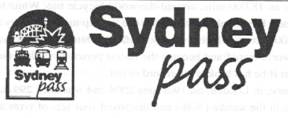The young man arrived on the Massachusetts beach early carrying a radio, a shovel(铁锹), and a strange set of tools: a brick layer’s trowel, a palette knife, spatulas, spoons, and a spray bottle.
He walked down near the water — the tide(潮水) was out — and switched on the radio to listen to soft rock. Then he shoveled wet sand into a pile nearly four feet high and as many feet across. Then he created a square shape.
After that, he set to work with palette knife, spatulas, and spoons. He shaped a splendid tower, topped walls, fashioned beautiful bay windows, and carved (雕刻)out a big front gate.
The man knew his sand. He smoothly finished some surfaces and carved artistic designs on others. As the shapes began to dry, he gently kept them slightly wet with water from the spray bottle, in case they might break in the wind.
All this took hours. People gathered. At last he stood back, obviously satisfied with a castle worthy of the Austrian countryside or Disneyland.
Then he gathered his tools and radio and moved them up to drier sand. He had known for a while what many in the crowd still ignored: the tide was coming in. Not only had he practiced his art with confidence and style, he also had done so against a powerful, irresistible(不可抵抗的) deadline.
As the crowd looked on, water came at the base of the castle. In minutes it was surrounded. Then the rising flood began to eat into the base, walls fell, the tower fell, and finally the gate fell. More minutes passed, and small waves erased bay windows — soon no more than a small part was left.
Many in the crowd looked terribly sad; some voiced fear and discouragement. But the man remained calm. He had, after all, had a wonderful day, making beauty out of nothing, and watching it return to nothing as time and tide moved on.
小题1:In this passage, why did the young man start early in the day?
| A.He needed the sun to help dry the sand. |
| B.It gave plenty of time for the crowd to gather. |
| C.He knew the tide was out on this particular morning. |
| D.It was easier to begin his work with only a few people around. |
小题2:In this passage, what does the incoming tide signal?
| A.It is time to begin working. |
| B.It is the end of a day’s work. |
| C.It is the busiest time of the day. |
| D.It is time for lookers-on to leave. |
小题3:How did the lookers-on react when the tide began to come in?
| A.They were disappointed to see the art ruined. |
| B.They tried their best to save the sand castle. |
| C.They were nervous about their own belongings. |
| D.They helped the artist finish the castle. |
小题4:We can tell that the young man’s reward for his work is ___________.
| A.payment for his work |
| B.personal satisfaction |
| C.popularity as an artist |
| D.attention from the crowd |



